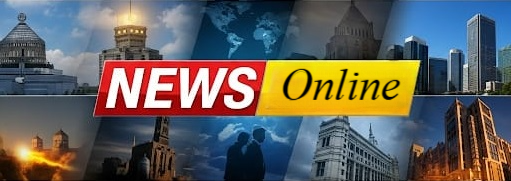History of Brazil
2 de junho de 2025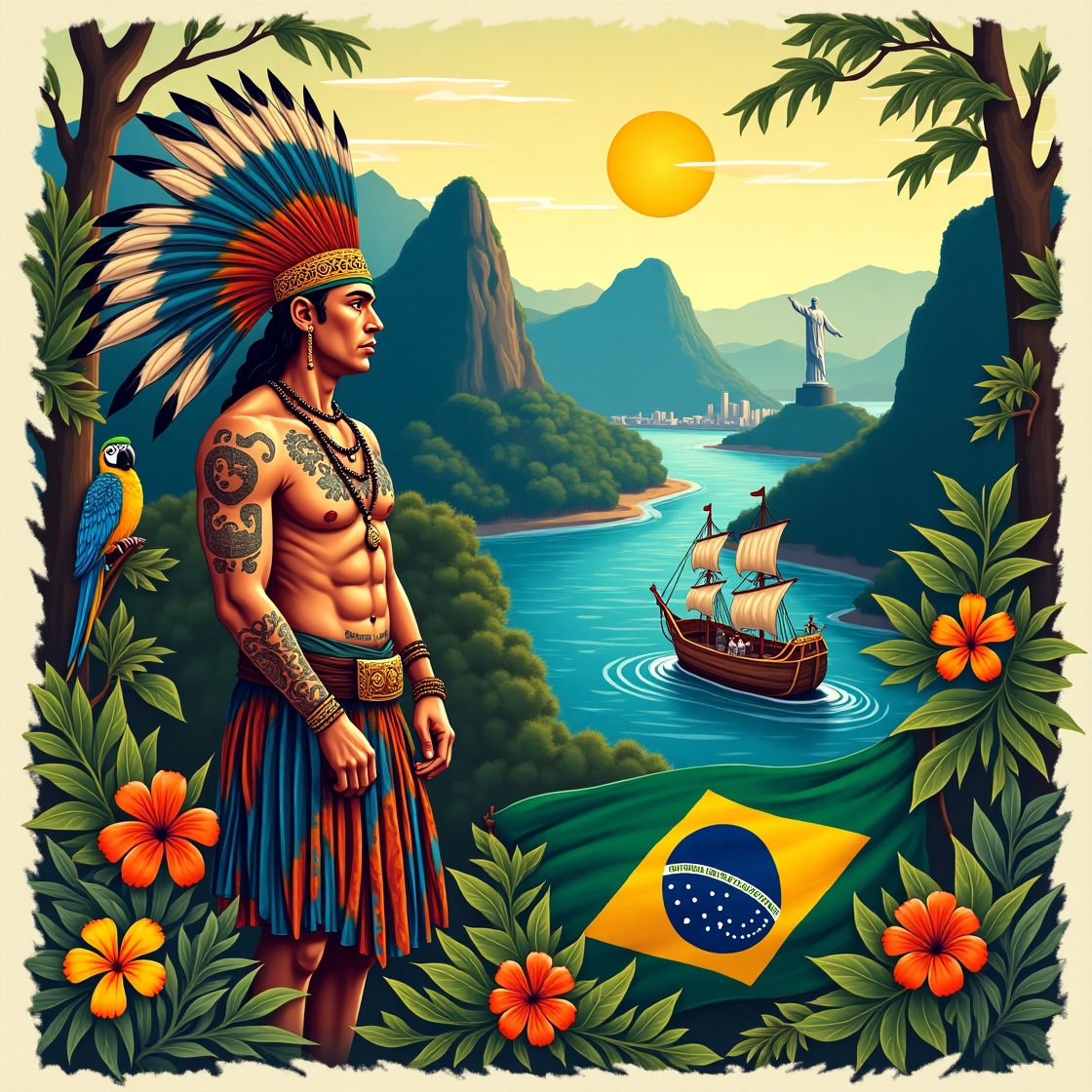
A história do Brasil envolve a fusão de culturas indígenas, africanas e europeias, passando por períodos significativos como a colonização, independência, e formação da república, moldando sua riqueza cultural e diversidade social até os dias atuais.
History of Brazil is a fascinating exploration of how this vibrant nation evolved over the centuries. Are you curious about the pivotal events that shaped Brazil’s identity? This article takes you on a journey through its rich and diverse past.
Early Indigenous Cultures
Before European contact, the land that is now Brazil was home to a rich tapestry of indigenous cultures. These groups thrived in diverse environments, from the Amazon rainforest to the arid regions of the northeast. Each culture had its own language, customs, and social structures, showcasing the variety of life in pre-colonial Brazil.
Social Structure and Community Life
Indigenous societies were highly organized, often living in large communities led by chiefs or councils. They practiced agriculture, hunting, and fishing, cultivating crops like manioc, corn, and various fruits. Their deep understanding of the land helped them to thrive sustainably, relying on natural resources.
Cultural Practices and Beliefs
Religious beliefs varied among groups but were often centered around nature and ancestor worship. Rituals, dances, and songs played crucial roles in their cultures, serving to strengthen community bonds and connect with the spiritual world. Oral traditions were vital for passing down knowledge and history from generation to generation.
Art and Expression
The artistry of indigenous peoples is evident in their crafts, including pottery, weaving, and body painting. These artisans created intricate designs that reflected their cultural identity and connected them to their ancestors. Their art often incorporated natural elements, such as feathers, seeds, and wood.
In summary, the early indigenous cultures of Brazil laid the foundation for the rich and diverse tapestry of the nation. Their contributions to agriculture, art, and social organization continue to influence Brazilian culture today.
Portuguese Colonization
The Portuguese colonization of Brazil began in the early 1500s, drastically changing the region’s landscape and population. Following the arrival of Pedro Álvares Cabral in 1500, Portugal claimed the land, leading to the establishment of settlements that aimed to exploit its rich resources.
Initial Encounters
When the Portuguese first arrived, they encountered various indigenous tribes. Some tribes interacted peacefully with the newcomers, while others resisted the invasion. These early encounters were often marked by a mix of curiosity and conflict, setting the stage for a tumultuous relationship.
Establishment of Sugar Plantations
One of the primary motivations for colonization was the lucrative sugar industry. The Portuguese established large sugarcane plantations in Brazil, which became central to their colonial economy. This led to the importation of enslaved Africans to work the fields, fundamentally altering the demographic and social landscape of the region.
Economic Exploitation and Trade
The colonizers also exploited Brazil’s natural resources, such as brazilwood, which was highly valued in Europe for making dye. As the economy grew, so did the demand for trade with Europe. This created a complex system of commerce that integrated Brazil into the global economy.
Impact on Indigenous Populations
The arrival of the Portuguese had devastating effects on indigenous populations. Diseases brought by Europeans decimated tribes, and many were displaced from their lands. The cultural impact was profound, leading to the loss of languages, traditions, and social structures.
Throughout the colonial period, the Portuguese implemented a system of governance that favored their elite. This laid the groundwork for social inequalities that would persist long after independence.
Independence Movement
The Independence Movement in Brazil was a crucial turning point in the nation’s history, occurring in the early 19th century. Influenced by the Enlightenment ideas and the wave of independence sweeping across Latin America, Brazil sought to break free from Portuguese rule.
Background and Causes
Several factors ignited the independence movement. After the Napoleonic Wars, the Portuguese royal family relocated to Brazil, making Rio de Janeiro the seat of government. This change fostered a sense of nationalism among Brazilians and sparked desires for autonomy.
The Role of Key Figures
Dom Pedro I, son of the King of Portugal, played a pivotal role during this period. He was well-received by the Brazilian population and, as tensions rose, he became a symbol of independence. In 1822, he famously declared “Independência ou Morte!” along the banks of the Ipiranga River, signifying Brazil’s break from Portugal.
Conflict and Struggles
The fight for independence was not without conflict. Supporters of independence faced opposition from those loyal to the Portuguese crown. However, the Brazilian population largely supported the movement, leading to a quick victory for the independence forces. By September 7, 1822, Brazil effectively secured its independence.
The Aftermath
Following independence, Dom Pedro I was declared the Emperor of Brazil. The new empire faced challenges, including the need for a stable government and the integration of diverse regional interests. While independence brought freedom from colonial rule, it also marked the beginning of internal conflicts and social issues that would shape Brazil’s future.
Empire of Brazil
The Empire of Brazil was a significant period in the nation’s history, lasting from 1822 to 1889. Established after Brazil gained independence from Portugal, this empire was marked by political, social, and economic changes that shaped modern Brazil.
Dom Pedro I’s Reign
Dom Pedro I became the first Emperor of Brazil and aimed to unite a diverse country. His reign began with reforms that expanded rights and encouraged immigration. However, he faced challenges, including political opposition and regional conflicts, which tested his leadership.
Constitutional Developments
In 1824, Brazil adopted its first constitution, which established a constitutional monarchy. This document guaranteed civil liberties and a separation of powers. Despite its progressive nature, it also concentrated power in the hands of the emperor, leading to tensions between different political factions.
Economic Growth
The economy during the Empire of Brazil saw considerable growth, particularly with the expansion of coffee plantations. The increasing demand for coffee in Europe fueled the economy and led to significant wealth for some regions. However, this growth heavily relied on the use of enslaved labor, which created social divides.
Social Challenges and Conflicts
Amidst economic prosperity, Brazil grappled with social issues, including the fight for abolition of slavery. The movement gained momentum in the 19th century, supported by both Brazilian citizens and international pressure. The abolition of slavery would become a defining characteristic of the latter part of the empire.
Decline and Fall of the Empire
Dom Pedro II succeeded his father, Dom Pedro I, and ruled with more political stability. However, as Brazil modernized, the need for more democratic governance grew. In 1889, a military coup led to the proclamation of the Republic, marking the end of the Empire of Brazil and ushering in a new era of governance.
Republic Era
The Republic Era in Brazil began in 1889, marking a significant shift from the monarchy to a republican form of government. This period was characterized by rapid transformations in Brazil’s political, social, and economic landscape.
Transition from Monarchy to Republic
The end of the monarchy was prompted by various factors, including growing discontent with the imperial system and demands for more democratic governance. The military coup that deposed Emperor Dom Pedro II was supported by a coalition of leaders from different sectors who sought a new political structure.
Political Changes and Constitution
In 1891, Brazil adopted its first republican constitution, establishing a federal system similar to that of the United States. This document laid the groundwork for political institutions and aimed to provide more power to the states, though it also led to regionalism and conflict between different areas of the country.
Economic Developments
The Republic Era saw significant economic changes, with a focus on industrialization and urbanization. Coffee continued to be a primary export, but there was also a push for diversification in agriculture and the growth of manufacturing sectors. This economic expansion attracted migrants seeking opportunities in urban areas.
Social Reforms and Issues
Social reforms were initiated to address issues such as education, labor rights, and public health. However, social inequalities remained prevalent, particularly regarding race and class. The legacy of slavery continued to impact society, leading to ongoing struggles for equality among Afro-Brazilians.
Political Turbulence
The Republic Era was also marked by political instability, with several military coups and revolutions occurring due to power struggles. The rise of populist leaders and social movements reflected the dissatisfaction of various groups with the status quo and demands for reform.
Modern Brazil
Modern Brazil represents a vibrant mix of history, culture, and progress. After the transition from monarchy to republic, Brazil has continued to evolve through various social, economic, and political transformations.
Economic Growth and Challenges
In recent decades, Brazil has experienced significant economic growth. As one of the largest economies in Latin America, it is known for its strength in agriculture, mining, and energy. However, the country also faces challenges such as inequality and economic instability which can affect progress.
Cultural Diversity
Brazil is famous for its rich cultural diversity, influenced by indigenous, African, and European traditions. This is evident in music, dance, cuisine, and festivals celebrating this fusion. Events like Carnival attract millions and highlight the country’s creative spirit and communal pride.
Political Landscape
The political scene in modern Brazil has been dynamic and sometimes turbulent. Frequent elections, protests, and political movements reflect citizens’ activism and engagement. Issues such as corruption, environmental policies, and social justice are central to current political debates.
Technological Advancements
Brazil has been making strides in technology and innovation, especially in sectors like renewable energy and digital entrepreneurship. Initiatives to support startups and technology-based solutions are vital for boosting the economy and employment opportunities.
Environmental Issues
As home to a large portion of the Amazon rainforest, environmental concerns are critical in Brazil. Deforestation, climate change, and biodiversity loss are pressing issues that require immediate attention. Balancing development with sustainability is crucial for the nation’s future.
Cultural Contributions
The cultural contributions of Brazil are vast and diverse, reflecting the rich history and multicultural influences that have shaped the nation. Brazilian culture is a blend of indigenous, African, and European elements, creating a unique and vibrant identity.
Music and Dance
Brazil is known worldwide for its music genres, such as samba, bossa nova, and forró. Samba is especially famous, often associated with Rio de Janeiro’s Carnival, where lively parades and celebrations take place. These music styles also highlight the rhythmic and expressive nature of Brazilian culture.
Visual Arts
The visual arts in Brazil showcase a blend of traditional and modern styles. Artists like Tarsila do Amaral and Emma E. de S. Ruiz have made significant impacts with their unique perspectives and vibrant color palettes. Their works often depict Brazilian landscapes, the country’s people, and societal issues, enriching the artistic heritage.
Culinary Diversity
Brazilian cuisine is another testament to its cultural melting pot. Dishes like feijoada, a hearty black bean stew, and acarajé, a fried ball of black-eyed pea dough, highlight the country’s culinary roots. Each region offers distinct flavors and ingredients, reflecting local traditions and history.
Literature and Poetry
Brazilian literature has produced numerous influential writers, such as Machado de Assis and Clarice Lispector. Their works explore complex themes like identity and social justice, contributing to a rich literary tradition that resonates with both national and international audiences.
Festivals and Traditions
Festivals like Carnival and Festa Junina illustrate Brazil’s cultural vibrancy. These celebrations involve music, dance, food, and costumes that reflect the diverse cultural heritage of the country, bringing communities together and showcasing their traditions.
Economic Development
Economic development in Brazil has been a crucial aspect of its history, shaping the lives of millions and influencing the global economy. The country has transitioned from a largely agrarian society to one that embraces industry and services, reflecting significant growth in various sectors.
Agricultural Dominance
Historically, agriculture has been the backbone of Brazil’s economy. The introduction of coffee cultivation in the 19th century transformed the economy, making Brazil the world’s largest coffee exporter. Other crops like sugarcane and soybeans also played vital roles in boosting the agricultural sector and driving exports.
Industrial Growth
In the mid-20th century, Brazil began to shift towards industrialization. The government encouraged the growth of manufacturing through various policies, resulting in increased production capabilities. Factories were established in urban areas, creating jobs and fostering economic development. This industrial growth positioned Brazil as a leading economy in Latin America.
Service Sector Expansion
Today, the service sector is predominant in Brazil, contributing significantly to the GDP. Areas such as finance, tourism, and technology have flourished, offering diverse job opportunities. Brazilian cities have become hubs for innovation and entrepreneurship, attracting investments from both local and foreign entities.
Investment in Infrastructure
Improving infrastructure has been a focus for economic development. Investments in transportation, energy, and telecommunications are crucial for facilitating trade and enhancing connectivity. Projects like the Minha Casa Minha Vida housing program aim to address urbanization challenges and promote inclusive growth.
Challenges and Opportunities
Despite the strides made in economic development, Brazil faces challenges such as inequality, unemployment, and environmental concerns. Addressing these issues while pursuing sustainable practices is essential for continued growth. Opportunities lie in renewable energy, agriculture technology, and digital innovation that can drive future economic success.
Social Changes
Social changes in Brazil have been significant throughout its history, impacting the fabric of society and influencing daily life for millions. These changes have emerged from political movements, economic transformations, and cultural shifts.
Impact of Urbanization
Urbanization has transformed Brazilian society over the past century. As people moved from rural areas to cities in search of better opportunities, cities like São Paulo and Rio de Janeiro grew rapidly. This urban influx led to the development of diverse communities, but it also created challenges such as housing shortages and increased poverty in favelas.
Changing Gender Roles
Women’s roles in society have evolved significantly. As more women joined the workforce, they began to challenge traditional gender norms. Movements advocating for women’s rights have pushed for equality in various areas, including politics, education, and employment. This shift has contributed to a more equitable society.
Race and Identity
Brazil’s racial diversity plays a crucial role in its social dynamics. Afro-Brazilians have fought for recognition and rights, particularly in the face of systemic racism and inequality. Cultural celebrations, such as Dia da Consciência Negra, highlight the importance of recognizing and valuing Afro-Brazilian heritage, contributing to a more inclusive national identity.
Education and Access
Education has been a focal point for social change in Brazil. While access has improved over the years, disparities still exist, particularly in rural areas and among marginalized groups. Initiatives to expand access to quality education are essential for fostering social mobility and reducing inequality.
Political Activism
Political activism has become a significant force for social change. Citizens have organized protests and movements to advocate for various causes, including environmental protection, labor rights, and social justice. This engagement demonstrates a growing awareness of societal issues and a desire for participatory governance.
Political Landscape
The political landscape of Brazil is complex and dynamic, shaped by its rich history and diverse population. Over the years, Brazil has transitioned through various forms of government, each leaving its mark on the nation’s political system.
Democracy and Governance
Brazil is a federal republic with a system of representative democracy. The Constitution, enacted in 1988, established the framework for governance, defining the powers of the federal and state governments. Brazil’s political system includes a president, a bicameral legislature, and an independent judiciary.
Political Parties and Elections
Brazil has a multi-party system, consisting of numerous political parties that represent a wide range of ideologies. Elections are held regularly to choose representatives at local, state, and federal levels. The electoral process is overseen by the Tribunal Superior Eleitoral (TSE), which ensures fairness and transparency in elections.
Social Movements and Activism
Social movements play a significant role in shaping Brazil’s political landscape. Grassroots organizations advocate for various causes, including environmental protection, human rights, and labor rights. Public protests and movements, such as the *Fora, Bolsonaro!* movement, reflect the population’s demands for change and accountability.
Challenges and Issues
Brazil faces numerous political challenges, including corruption, economic inequality, and social unrest. High-profile corruption scandals have shaken the political establishment and eroded public trust in politicians. Inequality remains a pressing issue, creating divisions in society that impact political discourse.
Recent Developments
In recent years, Brazil has seen significant political shifts, including the controversial impeachment of former President Dilma Rousseff and the election of President Jair Bolsonaro. These events have sparked intense polarization among the populace, with supporters and opponents fiercely debating policies on issues like health care, education, and environmental regulations.
A Recap of Brazil’s Journey
Brazil’s history and development are marked by rich cultural diversity, social changes, and a dynamic political landscape. From the early indigenous cultures to modern advancements, each era has contributed to shaping the nation.
The journey from colonial rule to a robust republic illustrates the resilience of the Brazilian people. Today, Brazil faces challenges like economic inequality and political polarization, yet it also has many opportunities for growth and innovation.
With a vibrant culture and engaged citizens, Brazil continues to evolve, making its mark on the world stage. As the nation moves forward, embracing inclusivity and sustainability will be key to ensuring a brighter future for all Brazilians.
FAQ – Perguntas frequentes sobre a história e evolução do Brasil
Qual foi a importância da independência do Brasil em 1822?
A independência do Brasil foi fundamental para o país se estabelecer como uma nação soberana, permitindo que desenvolvesse sua própria identidade e sistema de governo.
Como a cultura brasileira é influenciada por diferentes grupos étnicos?
A cultura brasileira é um rico mosaico que resulta da mistura de tradições indígenas, africanas e europeias, refletindo-se na música, dança, culinária e festas.
Quais desafios sociais o Brasil enfrenta atualmente?
O Brasil lida com desafios como desigualdade econômica, violência, e questões de justiça social, que afetam diversas camadas da população.
Qual o papel das manifestações sociais na política brasileira?
As manifestações sociais são uma forma de os cidadãos expressarem suas demandas e insatisfações, influenciando as decisões políticas e promovendo mudanças.
Como a urbanização impactou a sociedade brasileira?
A urbanização levou a um crescimento populacional nas cidades, resultando em desafios como favelas, crescimento econômico, e mudança nas dinâmicas sociais.
Por que a preservação da Amazônia é importante para o Brasil?
A preservação da Amazônia é crucial não só para o meio ambiente, mas também para a biodiversidade e o clima global, além de ser vital para as comunidades indígenas que dependem da floresta.
Relacionados
-
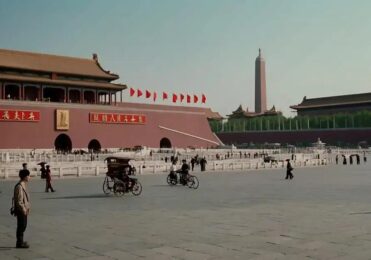 Praça da Paz Celestial
Praça da Paz Celestial
-
 French Revolution
French Revolution
-
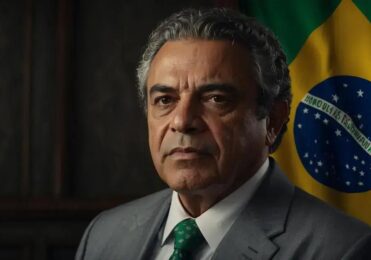 Jair Messias Bolsonaro
Jair Messias Bolsonaro
-
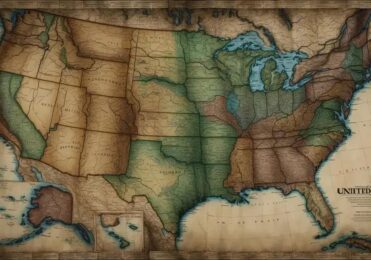 History of the United States of America
History of the United States of America
-
 Rosa de Luxemburgo
Rosa de Luxemburgo
-
 A Guerra dos Seis Dias
A Guerra dos Seis Dias
